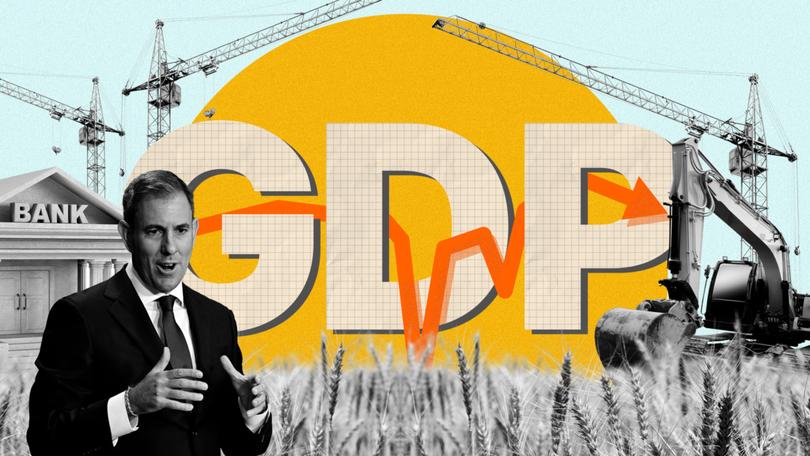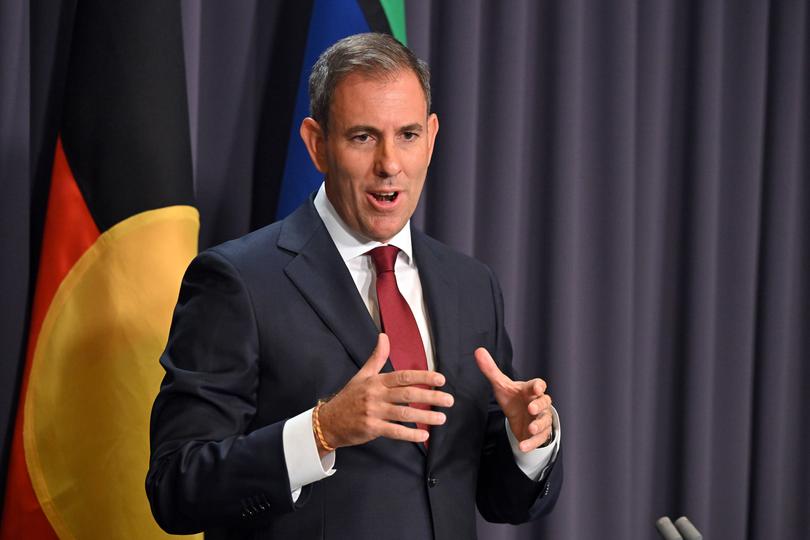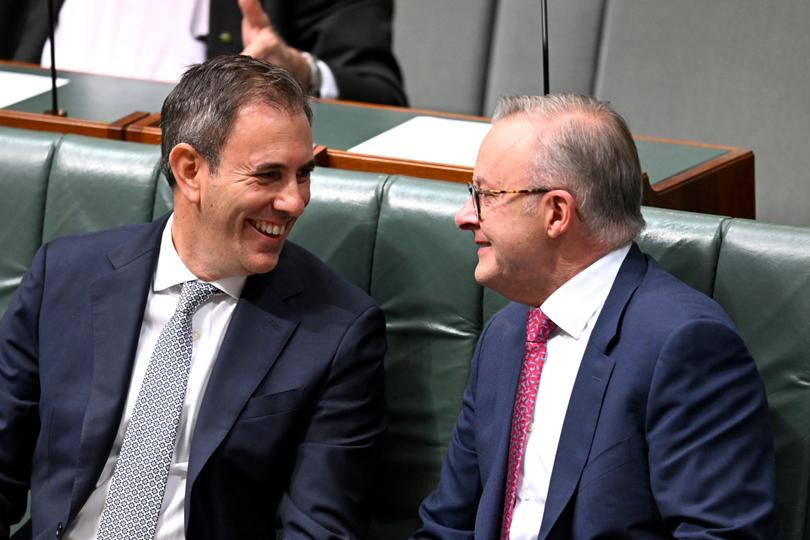CHRISTOPHER DORE: Jim Chalmers is gaslighting Australians about the dire state of the economy
Forget the slick stats and dishonest data, we are in the middle of a lengthy and crippling recession with working families going backwards at a rapid and sustained rate

We are in the middle of a lengthy and crippling recession — working families and average households are going backwards at a rapid, sustained rate. Our standard of living has collapsed. And there is no relief in sight.
Treasurer Jim Chalmers, who admits the national accounts out on Wednesday show the economy is still “quite weak” and people are “still under the pump”, has no plans to unveil any more substantial cost of living measures to help families.
Instead the Albanese government, relying on slick stats and dishonest data, is hoodwinking Australians into thinking they should be thankful for not being worse off.
Sign up to The Nightly's newsletters.
Get the first look at the digital newspaper, curated daily stories and breaking headlines delivered to your inbox.
By continuing you agree to our Terms and Privacy Policy.The official figures show every individual Australian is stuck in a recession, going backwards, but the Albanese government is gaslighting workers into believing we have escaped the economic horrors suffered by other nations.
The reality is real household incomes, a measure of our prosperity, have collapsed to the same level they were in 2017, and there is no immediate prospect of recovery for perhaps another three years.
This is the worst result of all the major OECD countries.
The national accounts reveal the economy “grew” by 0.2 per cent in the three months to December, or 1.5 per cent over the year, prompting Chalmers to metaphorically wipe his brow and release a quiet “phew” under his breath.
But under the headline “quite weak” growth figures, which reveal the country has so far avoided a “technical recession”, are the more meaningful numbers that show every household has crashed into negative territory for the third quarter in a row — a sustained “per capita recession”.
That is, when the statisticians and economists do the sums on a person-by-person basis, economic growth is stuck in reverse, even though the overall figures show the economy is getting slightly bigger. It’s growing because the Albanese government has welcomed record levels of migrants into the country, which makes the overall economic pie bigger, even though everyone’s slice is smaller.

Even so, it was the lowest rate of growth in the economy since 2000. The overall figure, which gets all the headlines in the financial press and the accolades out of the Canberra political press, was propped up by mining exports as usual, and hides the reality being felt by households.
Nevertheless, Chalmers says there are no plans to do anything more to help households cope. The $15-a-week or so tax cuts in July, and that’s it.
“We have been upfront with people and said there is not another $107 billion package like the cost of living tax cuts waiting to be announced — that will be the centrepiece of the cost of living relief that rolls out this year,” Chalmers said.
“If we can do a little bit more in another area or two obviously we will see if we can afford to do that.”
Chalmers implies the nation can’t afford to offer up any more relief, even though he is likely to book another surplus in the May budget, or very close to a surplus.
He is “proud” of last year’s surplus, the first in 15 years, and will continue to show “restraint” and “responsibility” when it comes to managing the national budget.
Chalmers said “we have done our bit” in tackling inflation and is banking on the Reserve Bank doing its bit by starting to reverse the upward trajectory in interest rates that have drilled holes in the budgets of struggling households paying off their family homes.

The national accounts show the most pain being felt by the dirty dozen 13 consecutive hikes in interest rates is in our biggest State NSW, which has gone backwards big time in the past quarter.
The data shows households were forced to spend more on essentials — electricity, rent, food, health — and cut back on eating out and buying clothes.
Household disposable income is now 2.1 per cent lower today than it was this time last year, as inflation, interest rates and extra taxes, through the insidious bracket creep, stripped away any extra cash in bank accounts.
Despite the strong Budget position, Chalmers does not want to offer any cost of living relief that will add to inflation and stop the Reserve Bank from ending the cycle of rate rises.
The Treasurer gave a clear message to the RBA, saying it would be “very focused on this data” and aware that inflation is well down from its highest levels in 2022.
Inflation is moderating, Chalmers said, but it is “not mission accomplished” because “people are still under the pump”.

